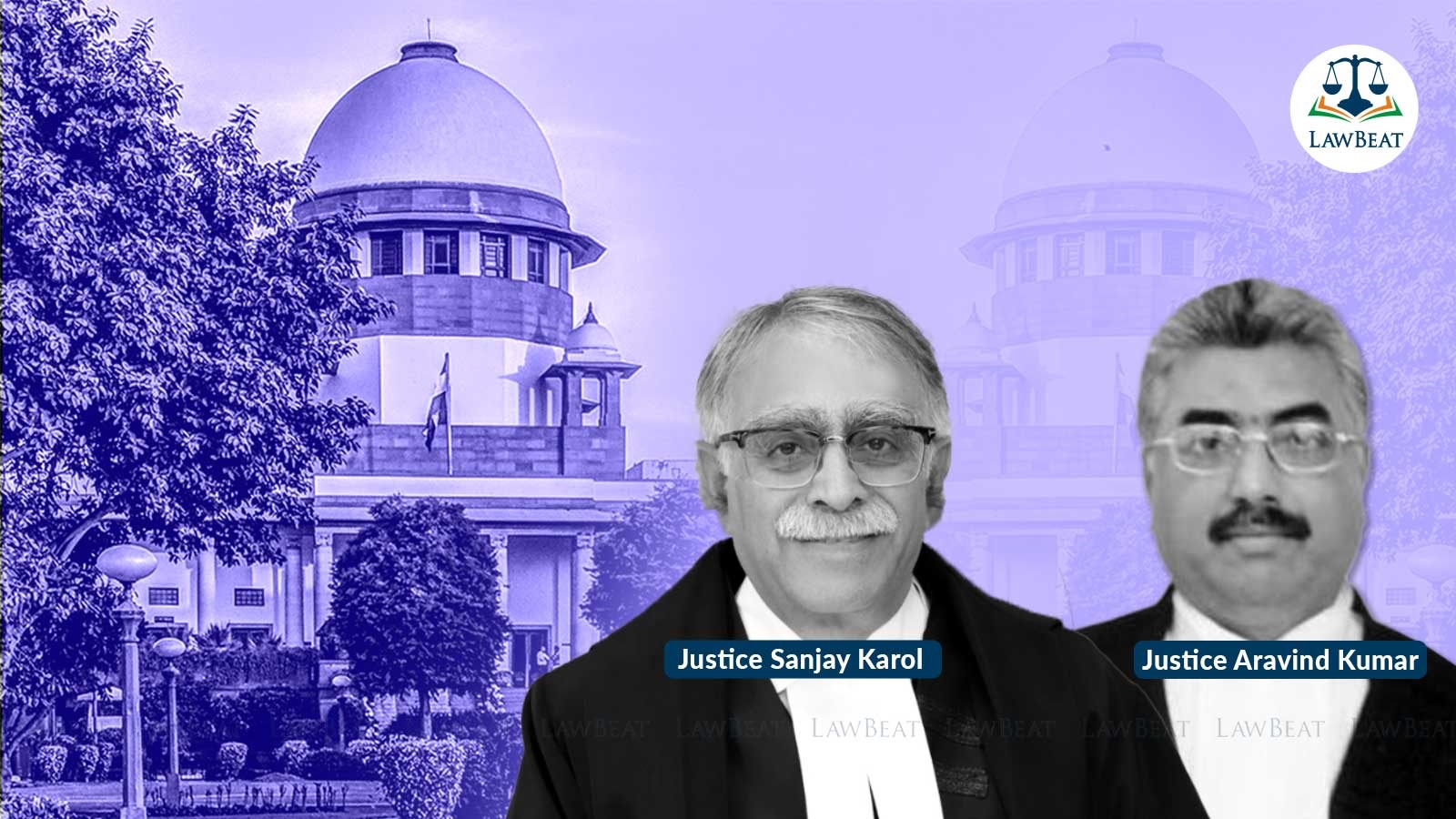SC rejects application of 'Eggshell-Skull Rule'; awards Rs 5 lakh as compensation for medical negligence

Court noted that the complainant suffered pain for more than five years and the case dragged on for more than a decade, and yet a paltry sum of Rs two lakh was granted as lump sum compensation
The Supreme Court has on April 23, 2024 set aside an order by the National Consumer Disputes Redressal Commission reducing a compensation awarded to a woman for medical negligence of leaving a needle during the operation of apenditicis at a hospital in Mandi in Himachal Pradesh in 2005.
A bench of Justices Sanjay Karol and Aravind Kumar rejected the NCDRC's decision to apply the 'Eggshell-Skull Rule' in the instant case and restored the district consumer forum's order to award the woman appellant Jyoti Devi the compensation of Rs five lakh to be paid by Suket Hospital and others for being medically negligent and for providing services deficient in nature.
The appellant was admitted to Suket Hospital, Sundernagar, Mandi, Himachal Pradesh on June 28, 2005 and had her appendicitis was removed by Dr Anil Chauhan, Senior Surgeon, Suket Hospital. Post surgery, she was discharged on June 30, 2005.
However, her ordeal did not end there. She suffered continuous pains near the surgical site, as such she was admitted again on July 26, 2005 but was discharged the next day with the assurance that no further pain would be suffered by her.
She was treated by another doctor on a reference by Dr Chauhan, but her suffering did not end.
Eventually, when she landed up for treatment at the Post Graduate Institute of Medical Science, Chandigarh, it was found that a 2.5 cm foreign body (needle) “was present below the anterior abdominal wall in the preveside region just medial to previous abdominal scar (Appendectomy)” for which a further surgery had to be performed for its removal.
She approached the District Forum which awarded her compensation of Rs five lakh in 2013. On appeal, the state commission reduced the amount for physical pain, mental agony, and expenses incurred by her, to the tune of Rs one lakh.
On revision, the NCDRC applied the eggshell skull rule and enhanced the compensation to only Rs two lakh.
The bench, however, pointed out that for this rule to be appropriately invoked and applied, the person in whose case an adjudicatory authority applies must have a pre-existing conditions.
The court pointed out that the jurisprudence of the application of this rule, as has developed, (needless to add, in countries other than India) has fit into four categories - first, when a latent condition of the plaintiff has been unearthed; second, when the negligence on the part of the wrongdoer re-activates a plaintiff’s pre-existing condition that had subsided due to treatment; third, wrongdoer’s actions aggravate known, pre-existing conditions, that have not yet received medical attention; and fourth, when the wrongdoer’s actions accelerate an inevitable disability or loss of life due to a condition possessed by the plaintiff, even when the eventuality would have occurred with time, in the absence of the wrongdoer’s actions.
"As these categories and, the name of the rule itself suggest, the persons to whose, this rule can be applied, are persons who have pre-existing conditions," the bench said.
In the instant case, the bench said, "We find the manner in which compensation stood reduced by the State Commission as also the NCDRC, vis-à-vis the District Forum to be based on questionable reasoning".
The court pointed out that the NCDRC observed that the claimant-appellant’s treatment at the respondent-Hospital was ‘casual’; that the excuse of having sought treatment at other hospitals was not available to the respondents and that she had suffered pain for more than five years apart from the case having been dragged on for more than a decade, and yet lump sum compensation was only Rs two lakhs.
"How could such compensation be justified, after observations having been made regarding the service rendered by the Hospital, being deficient, and the continuous pain and suffering on the part of the claimant-appellant, is something we fail to comprehend. Compensation by its very nature, has to be just. For suffering, no part of which was the claimant-appellant’s own fault, she has been awarded a sum which can, at best, be described as ‘paltry’," the bench said.
With regard to the application of the eggshell-skull rule, the court observed that the impugned judgment was silent as to how this rule applied to the present case.
"Nowhere is it mentioned, as to what criteria had been examined, and then, upon analysis, found to be met by the claimant-appellant for it to be termed that she had an eggshell skull, or for that matter, what sort of pre-existing condition was she afflicted by, making her more susceptible to such a reaction brought on because of surgery for appendicitis," the bench said.
The court pointed out that none of the orders - be it District, State Commission or the NCDRC referred to any such condition which showed that the complainant had a pre-existing vulnerability or medical condition, because of which she might have suffered ‘unusual damage’.
The court, thus, directed the respondents to pay within four weeks Rs five lakh, along with Rs 50,000 cost of litigation to the appellant with 9% simple interest from the date of award by the district forum.
